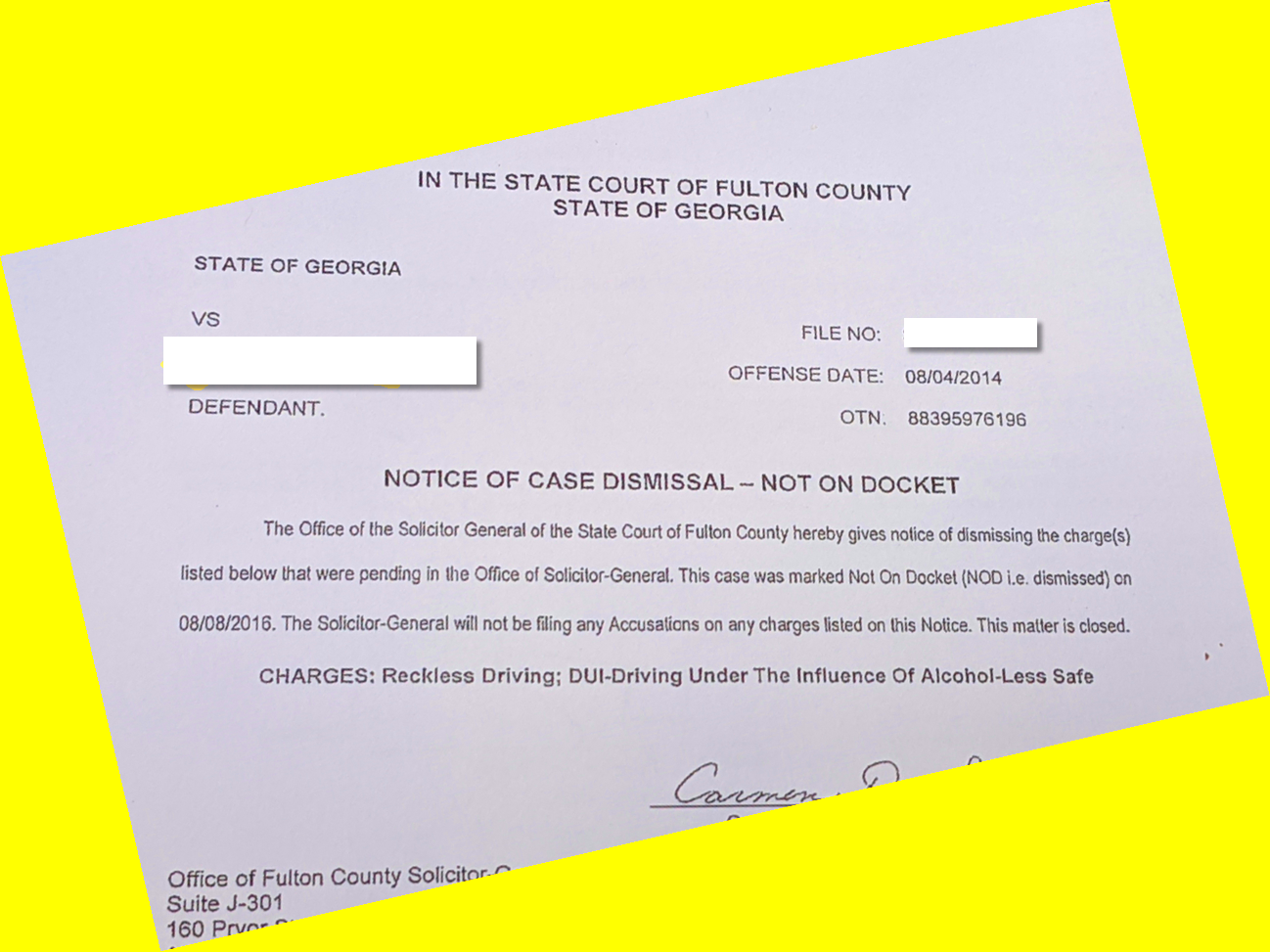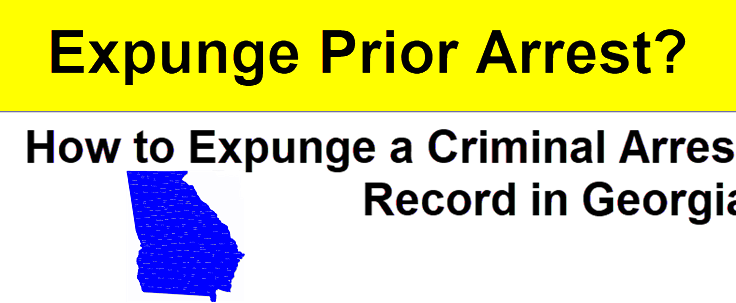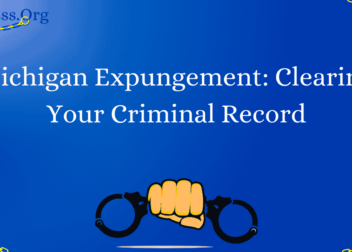What You Need to Know About Georgia Criminal Record Expungement
In Georgia, a criminal record can significantly affect your life. It may impact your employment opportunities, housing options, and even relationships. Criminal records are public documents that contain information about arrests, charges, convictions, and sentences. Whether you’ve been convicted of a crime or simply arrested, this information can remain accessible to employers, landlords, and the public.
It’s important to understand that not all criminal records are created equal. Some records may be eligible for expungement, which means they can be sealed or removed from public view. This process can help individuals move forward without the stigma of a past conviction. Let’s dive deeper into what expungement means and how it works in Georgia.
What is Expungement

Expungement is the legal process of removing or sealing a criminal record. When a record is expunged, it is as if the arrest or conviction never happened. This can provide significant relief for those who have made mistakes in the past. Expungement can help restore a person’s reputation and allow them to reintegrate into society more easily.
In Georgia, expungement is formally referred to as “record restriction.” The law allows certain individuals to restrict access to their criminal records under specific conditions. This means that while the record still exists, it won’t show up in background checks for most purposes.
To qualify for expungement, you need to follow the specific legal process and meet the eligibility criteria outlined by Georgia law.
Eligibility for Expungement in Georgia
Not everyone is eligible for expungement in Georgia. Understanding the criteria is crucial if you’re considering this option. Here are some key points to keep in mind:
- Type of Offense: Only certain offenses are eligible for expungement. Generally, misdemeanors and some felonies may qualify, but serious crimes like violent felonies or sexual offenses are usually not eligible.
- Outcome of the Case: If your case was dismissed, acquitted, or resulted in a plea of nolo contendere, you may be eligible. However, if you were convicted, the eligibility can be more complicated.
- Time Since the Offense: There is typically a waiting period before you can apply for expungement. In most cases, this is five years from the completion of your sentence, including probation.
- No New Offenses: You must not have been convicted of any new crimes since the offense you want to expunge.
If you meet these criteria, you can begin the application process to have your criminal record expunged in Georgia. Consulting with a legal expert can help you navigate this process more effectively.
Steps to Apply for Expungement
Applying for expungement in Georgia involves a series of clear steps. Understanding these steps can make the process smoother and increase your chances of success. Here’s a simple guide to help you navigate through the application process:
- Determine Eligibility: First, confirm if your offense qualifies for expungement. Review the criteria we discussed earlier to ensure you meet the necessary conditions.
- Gather Documentation: Collect all relevant documents related to your case, including court records and arrest reports. Having complete and accurate information is crucial.
- Complete the Application: Fill out the application form for record restriction. This form can usually be found on your local courthouse’s website or obtained directly from their office.
- File the Application: Submit your completed application along with any required fees to the appropriate court. Make sure to keep a copy for your records.
- Attend the Hearing: In some cases, you may need to attend a hearing. Be prepared to explain why you believe your record should be expunged and answer any questions the judge may have.
- Wait for the Decision: After the hearing, the court will review your case and make a decision. This can take several weeks, so be patient.
By following these steps, you can successfully apply for expungement and take a significant step towards moving on from your past.
Documents Required for Expungement
When applying for expungement in Georgia, having the right documents is essential. Proper documentation not only supports your application but also helps clarify your situation to the court. Here’s a list of documents you’ll typically need:
- Application for Record Restriction: This is the main form you will need to fill out and submit.
- Copy of Your Criminal Record: Obtain a copy from the Georgia Bureau of Investigation (GBI) or local law enforcement.
- Court Records: Gather any relevant court documents pertaining to your case, including judgments and sentencing details.
- Proof of Completion of Sentence: Include documents that show you’ve completed all terms of your sentence, including probation, parole, or community service.
- Affidavit: Depending on your case, you might need to provide a sworn statement about your situation.
Ensure all documents are up-to-date and accurately reflect your circumstances. Organizing these documents beforehand can help streamline the application process.
What to Expect During the Expungement Process
The expungement process can feel daunting, but knowing what to expect can help ease your mind. Here’s a breakdown of what typically happens after you submit your application:
- Initial Review: Once your application is filed, the court will conduct an initial review to ensure all necessary information is provided.
- Possible Hearing: In some cases, you may be required to attend a hearing. The judge will review your application, listen to your explanation, and may ask questions to better understand your situation.
- Decision Time: After the hearing, or upon completing the initial review, the court will make a decision. You will receive a written notice detailing whether your expungement was granted or denied.
- Notification of Law Enforcement: If your expungement is granted, the court will notify law enforcement agencies to update their records accordingly.
- Follow-Up: It’s a good idea to check your criminal record after the process is complete to ensure it reflects the expungement.
Keep in mind that patience is key during this process. It may take several weeks for the court to process your application and provide a decision. However, this effort can lead to a fresh start and new opportunities in your life.
Common Misconceptions About Expungement
There are many misunderstandings surrounding the expungement process in Georgia. These misconceptions can create confusion and deter individuals from seeking the fresh start they deserve. Let’s clear up some of these common myths:
- Myth 1: Expungement is automatic.
Some people think that once they complete their sentence, their record is automatically expunged. In reality, you must actively apply for expungement. - Myth 2: All criminal records can be expunged.
Not every offense is eligible for expungement. Serious crimes, like violent felonies, typically cannot be expunged. - Myth 3: Expungement erases your record completely.
While expungement seals your record from public view, it doesn’t erase it from existence. Certain agencies may still access it. - Myth 4: You can expunge your record at any time.
There are waiting periods and conditions that must be met before you can apply for expungement. - Myth 5: Expungement is too complicated.
While the process may seem overwhelming, many people successfully navigate it, especially with the right guidance.
By understanding these misconceptions, you can make informed decisions about your options for moving forward and reclaiming your future.
Impact of Expungement on Your Record
Expungement can significantly impact your life, especially if you’ve faced challenges due to a criminal record. Understanding this impact can help you appreciate the value of the expungement process.
When your record is expunged, here’s what typically happens:
- Sealed Access: Your criminal record becomes inaccessible to most employers, landlords, and the public. This can open up new job and housing opportunities.
- Restoration of Rights: Expungement can restore certain rights that may have been affected by your criminal record, such as the right to vote or own a firearm, depending on your circumstances.
- Improved Reputation: With a clean record, you can present yourself more positively in both personal and professional settings, reducing stigma associated with past mistakes.
- Future Background Checks: Most background checks will not reveal expunged records, which means potential employers or landlords won’t see your past offenses.
However, it’s important to note that certain government agencies may still have access to your expunged record for specific purposes. Overall, expungement can be a powerful tool for rebuilding your life.
FAQs
Here are some frequently asked questions about the expungement process in Georgia:
- How long does the expungement process take?
The process can take several weeks to months, depending on the court’s schedule and the complexity of your case. - Can I expunge multiple offenses?
Yes, you can apply for expungement for multiple offenses, but each case will be evaluated individually. - Do I need a lawyer to apply for expungement?
While it’s not required, hiring a lawyer can help navigate the legal complexities and improve your chances of success. - Will expungement remove all traces of my criminal record?
No, expungement seals your record from public view but does not erase it from law enforcement or certain government agencies. - Can I reapply if my expungement request is denied?
Yes, you may reapply after a certain period or if your circumstances change.
If you have more questions, consider consulting with a legal professional to ensure you fully understand your options and rights regarding expungement.
Conclusion
Expungement can be a transformative process for those looking to move on from past mistakes and regain control over their lives. Understanding the requirements, steps, and potential impact of expungement is crucial for making informed decisions. While there are common misconceptions about the process, being well-informed can empower you to take the necessary steps toward a fresh start. Whether you choose to navigate the process on your own or seek legal assistance, taking action can open up new opportunities for employment, housing, and personal growth. Don’t let a past mistake define your future—consider exploring your options for expungement today.

